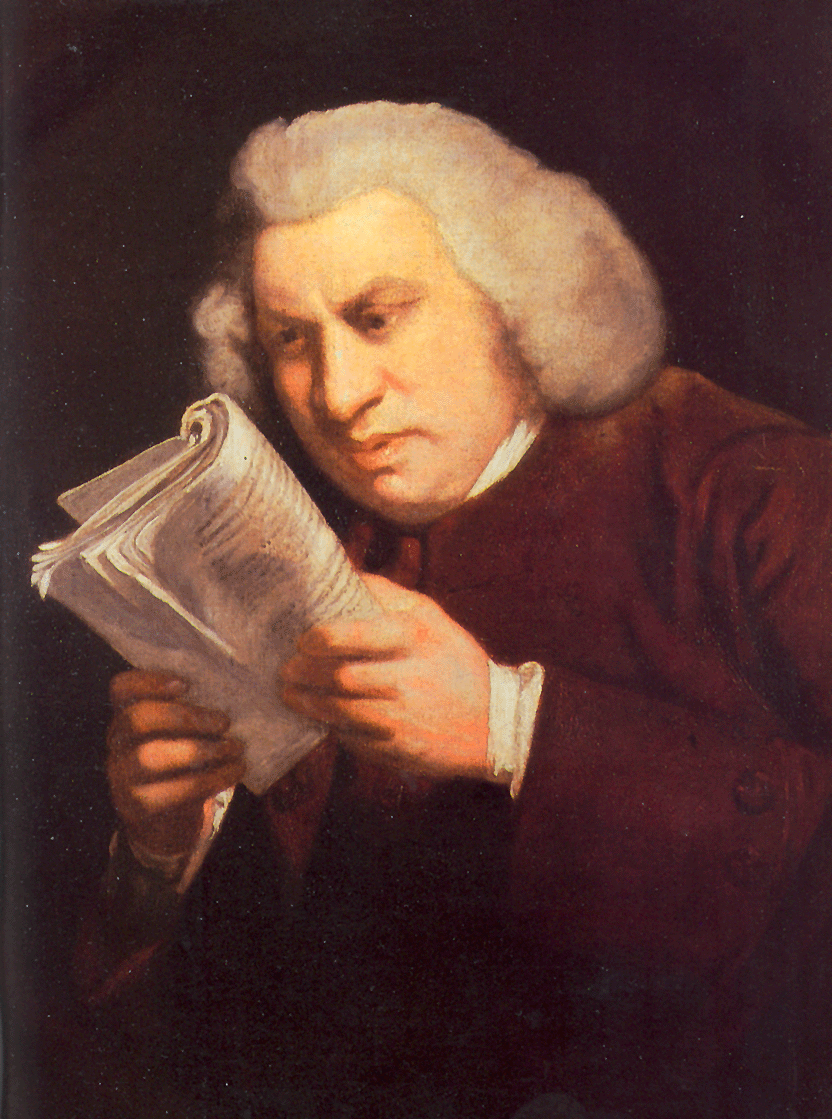
Alphabetical list of literary terms and definitions
Literary Criticism is the interpretive work written by readers of literary texts, especially professional critics (known as literary critics). It is "criticism" not because it is negative or corrective but rather because those who write criticism ask probing, analytical, critical questions about the works they read. Literary criticism is the evaluation, analysis, description, or interpretation of literary works. It is usually in the form of a critical essay, but in-depth book reviews can sometimes be considered literary criticism. Criticism may examine a particular literary work, or may look at an author’s writings as a whole.
Finding literary criticism can be challenging, but it is easier when using the right tools.
Click on the "Find Articles" tab above to see how to so a search and also to select a database.

"Samuel Johnson by Joshua Reynolds 2" by Joshua Reynolds is licensed under Public Domain

Use one or both of the databases listed below to obtain appropriate materials to cite in the paper.
The Classical Period (1200 BC - 455 AD)
The Medival Period (455 -1485)
The Renaissance and Reformation (1485 - 1660)
The Enlightenment (Neoclassical) Period (1660-1790)
The Romantic Period (1790-1830)
The Victorian Period & 19th Century (1832-1901)
The Modern Period (1914-1945?)
The Postmodern Period (1945? onward)